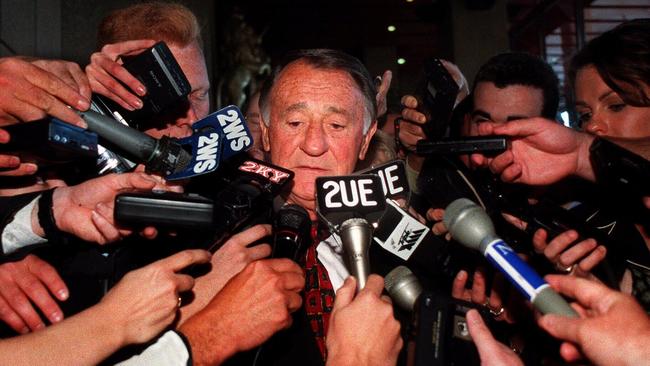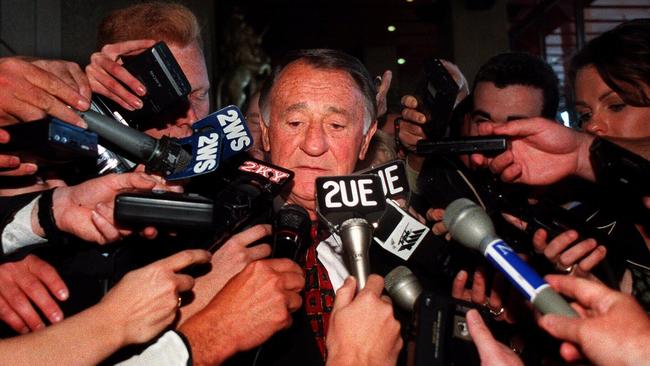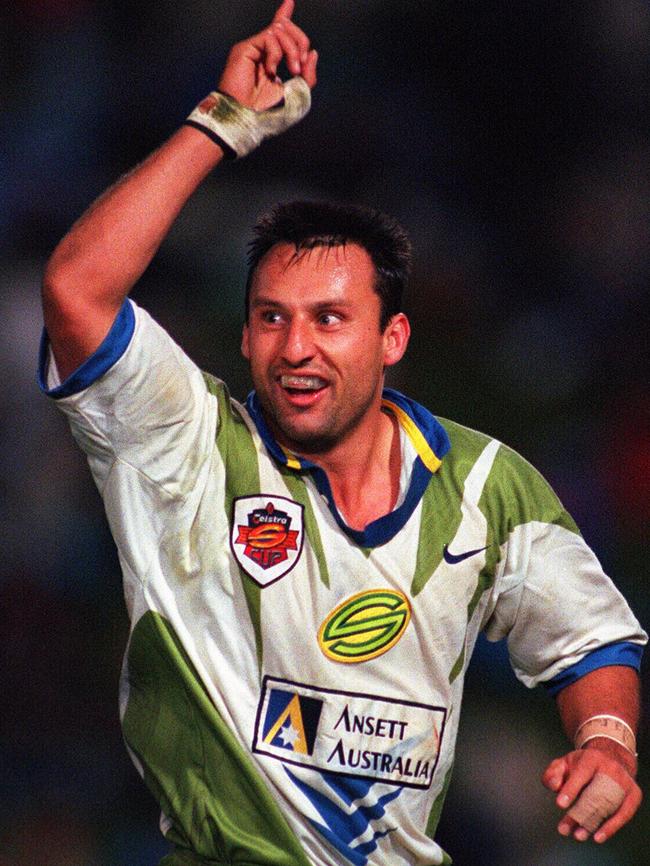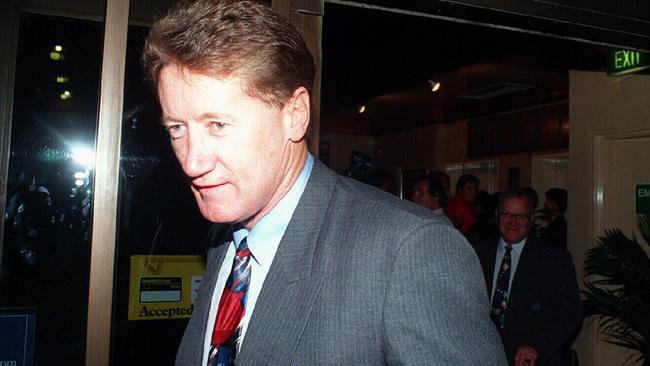NRL looks back 20 years on after end of Super League war
THE anniversary of the end of one of the most controversial eras in rugby league went by without notice on Tuesday, marking 20 years to the day when the Super League war ended.

NRL
Don't miss out on the headlines from NRL. Followed categories will be added to My News.
THE anniversary of the end of one of the most controversial eras in rugby league went by without notice yesterday, marking 20 years to the day when Super League and the ARL came together to form the NRL.
December 19, 1997. Truce time.
It ended the most tumultuous and turbulent period in Australian rugby league’s 109-year history.
A time when long-time friends became enemies, almost overnight as rivals competitions were contested and players became instant millionaires.
After several years of threats and posturing, the 1997 split competitions were played on a political and legal minefield.
CASH BOOST: NSW clubs to get government money
300: Legends set to join elite club

“It caused a lot of broken friendships, lifelong friendships, some of which have never, ever been mended,” then ARL chairman Ken Arthurson said.
“It was one of the worst times in the game and I’ve been involved a lifetime. A terrible time but rugby league has always come back. And the reason for that is, simply, it’s a great game.
“Thankfully it has all been ironed out. It’s all over now and I don’t think we should have any recriminations.”
Super League, created by News Corporation, raided the ARL after unsuccessfully attempting to secure the game’s pay television rights in Australia.
The 10-team Super League ran in competition against the 12-team ARL premiership.
Disengaged fans started dismissing rugby league, prompting officials from both sides to strike peace deal.

“They were interesting and challenging times,” said former Canberra star, Laurie Daley, who inadvertently became the face of Super League.
“It was a different time. There was two competitions running and everyone — players and clubs — were trying to do the best for themselves.
“Overall, the game survived and has moved forward and players are getting well rewarded now and so they should be given the income coming into the game.
“When it first started, I don’t think anyone actually thought there would be two competitions running.
“We’d thought there would be some hardball and all of a sudden they would work it out. But it wasn’t worked out and there was a split and a lot of people were upset with that. And quite rightly so.”

ARL powerbroker and former Eels CEO Denis Fitzgerald doesn’t harbour any fond memories from those vitriolic days.
“There were divisions caused at that time that still haven’t been healed and never will heal,” said Fitzgerald, who became an NRL board member when the new competition started in 1998.
“A number of people put their own financial situation ahead of the good of the game It was terrific for the game and everyone involved — players, fans and officials — that finally they got together.
“It came after some bitter disputes and a lot of friendships got lost. A lot of lies were told. There were so many who took the money and ran — players coaches and officials. There were some amazing things that happened.”



